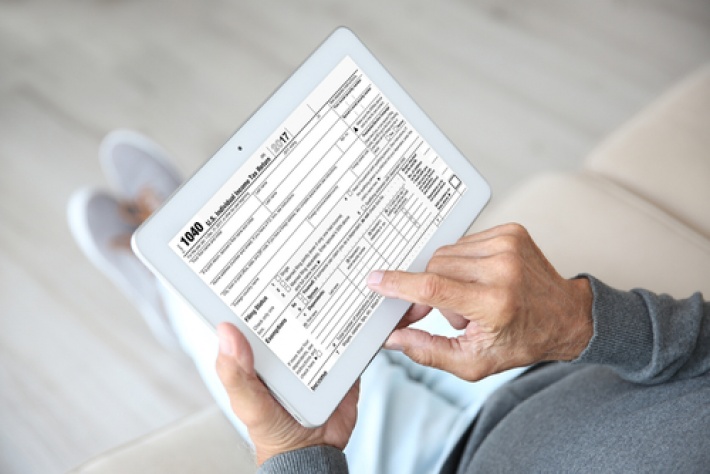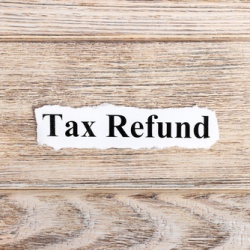Top tips for completing your tax return

If you are self-employed or run your own business then you will probably be aware that you need to complete an annual tax return to calculate the amount of tax that you need to pay to HMRC. However this can feel like a daunting task to many people as mistakes such as submitting incorrect information or missing the filing and payment deadline could lead to expensive fines and penalties being imposed.
However if you are organised, just a little meticulous, and follow some of our top tips for filing your tax return below then the process can actually be relatively straightforward.
Who needs to file a tax return?
Obviously if you are self-employed, in a partnership or a director of a limited company then you will need to file an annual tax return. However there are a number of other circumstances under which you may also need to do this:
- If you receive a salary or a pension of over £100,000.
- You have an income from abroad which you haven’t already paid tax on.
- You claimed Child Benefit and your or your partner’s income was over £80,000.
- You have an investment income (pre-tax) of £10,000 or more.
- You are a minister of religion.
- If you have received a P800 form from HMRC regarding underpaid tax.
- You were a trustee of a trust or a registered pension scheme.
- You are a trustee or representative of someone who has died.
Contact HMRC for further information if you are not sure whether you need to complete a tax return or not, as there could be penalties imposed for not filing a tax return if you should have.
If you are required to complete a tax return then following our below tips will help to ensure that the process is as quick and simple as possible.
Register with HMRC
The first step to filing your tax return is to register with HMRC. Make sure that you do this well in advance of the filing date (31 January each year if you submit your tax return online) as you will need to receive an activation code through the post, which can take up to 20 days to arrive. You will then receive your 10 digit Unique Taxpayer Reference (UTR) which you will need whenever you submit a tax return or have any contact with HMRC.
You can either file your tax return online, in which case the filing and payment deadline is 31 January each year, or you can still file a paper return, in which case the filing deadline is 31 October each year. However, most people now file their tax returns online, as it is generally quicker and easier.
Gather your information
Before starting the process of submitting your tax return, make sure that you have all of the paperwork and accounts information that you will need to hand. At any point during submitting your tax return online you can save your data and then come back to it if you need to double check anything. However it is much easier if you have everything ready to go so that you can complete the process in one session.
Exactly what information you will require depends on your situation, however commonly you will need information such as:
- P60 – showing how much you have earned through employment in the last tax year.
- P45 – detailing the amount you earned at any jobs that you have left in the last tax year.
- P11D – some employers will provide you with this if you have received any taxable benefits or expenses in the past year.
- The income and expenditure amounts for your business, if you are a sole trader or in a partnership.
- Information of any interest that you have received from savings (unless these are tax free such as ISA’s).
- The amounts received from any shareholding dividends.
Claim your reliefs and expenses
If you are running a business then it is important for you to claim all of your legitimate business expenses and tax reliefs, as this can significantly reduce the amount of tax that you will have to pay. However it is incredibly important to ensure that everything you are claiming is fully compliant with HMRC regulations, as if you are found to be contravening the rules then the penalties imposed could end up being higher than the amount you were trying to save in the first place.
HMRC has detailed guidelines on its website, or you can also engage the services of an accountant or specialist tax advisor who will no doubt understand the system far better than anyone who is just starting out. This specialist knowledge can, in many cases, legitimately save you more money than your accountant’s fees (which can often be as little as around £150 for filing a simple tax return), leaving you both better off and secure in the knowledge that everything has been handled correctly.
If you are looking for an accountant or tax advisor to help with your tax return and finances, then Handpicked Accountants can put you in touch with a number of recommended and reputable accountants in your area. Handpicked Accountants only features firms who have been thoroughly vetted and so you can rest assured that you will be working with someone who will put your success first, providing exceptionally high levels of service for a fair and reasonable price. Contact Handpicked Accountants to find your perfect accountant today.


